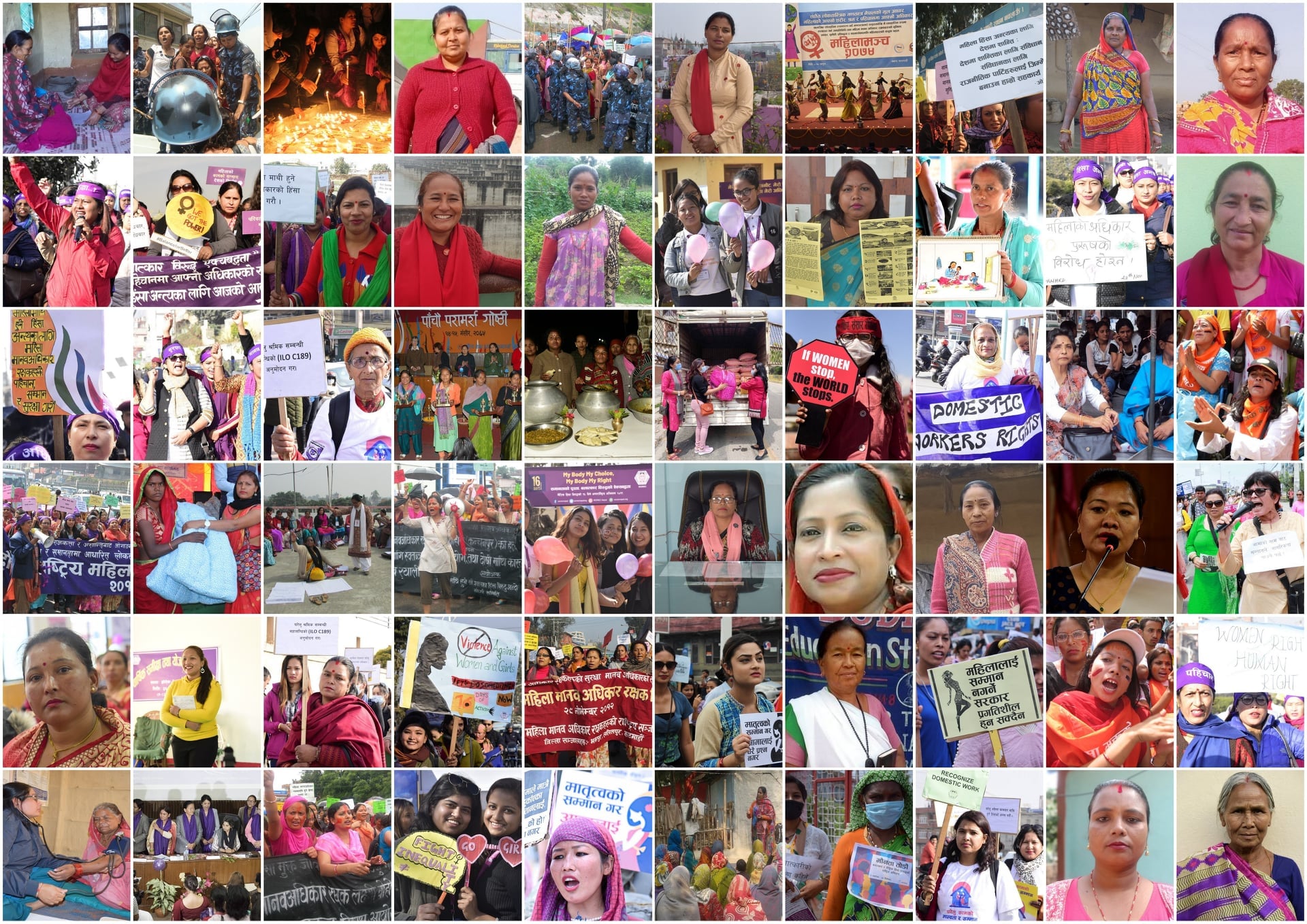
Background
A feminist slogan, "personal is political," reflects that every personal act connects with a prominent political structure. The lives of women and girls remain subject to control through predominantly patriarchal structures, family laws, and institutions. This is often justified based on religion and codified in social and legal practice to naturalize the relationship and identity of women and girls as subordinates. Consequently, the social structure and harmful traditional norms have shaped women's personal experiences.
In a patriarchal society like ours, a woman and girls are deprived of their Human Rights in the name of social norms and practices. Woman means not a homogeneous group. Rather, caste, class, ethnicity, age, geography, race, gender identity, sexual orientation, generations Etc., shape a woman's experiences. These intersectional identities have to face different layers of discrimination in relation to different social structures.
Hence, to break the discriminatory laws and social norms and question unequal power relations, each woman's personal experience from a different intersectional and intergenerational identity needs to be analyzed from a feminist perspective. Because patriarchal politics has shaped the violent incidents against women and girls, each person's experiences reflect and question the unfair political tactics of patriarchy.
Facts
With the change in social elements, patriarchal notions, and avenues of violence are also changing. Despite the constitutional provisions and bodies; Article 38 (Rights of women), National Women’s Commission, gender equality policy 2021, youth vision 2025, National Action Plan against child marriage 2015, etc. young women have to face different types of violence and discrimination as compared to middle-aged women. Annual book of WOREC on GBV data analysis, Anbeshi 2020 reveals women and girls of age between 17 to 25 years facing violence (GBV) is highest among the total cases with 33 percent. Likewise, according to UNICEF (2016) data, 37 percent of girls in Nepal get married before the age of 18. Similarly, 10 percent of girls get married before the age of 15. The age to learn, educate and develop careers has to tackle the painful violent experiences.
WOREC’s Perspective
Feminism believes that every individual is an authentic source of knowledge based on their personal experience. To generate new leadership, minimizing the generational gap for hovering the familiar voice, passing the feministic skills and knowledge (the way they dealt with discrimination, resilience building, and protest for emancipation) to the next generation and incorporate the youth/adolescent issues in the mainstream feminist movement are some of the significant strategic politics of WOREC's feminist movement. It is essential to carry on the movement for equality and social justice from generation to generation until patriarchy is defeated.
Other research shows that girls, lacking agency and voice are going through multiple layers of violence and discrimination. One generation needs to understand another generation's issues and enhance their own agency by recognizing the essence of equality, related to existing social, economic, and political power relations. Knowledge and experience exchange between the generations, creating an environment for associated response to the issues, and building trustful leadership through listening, transferring, and aligning are significant objectives of intergenerational feminist dialogue for WOREC. Thus, Intersectional and intergenerational issues must be discussed between multiple generations to reduce the ideological conflict between generations and identities and for a practical way forward.
Process of inter-generational feminist dialogue
(It should be more focused on the realization of the participant rather than analysis of the facilitator. These steps cycle periodically)
Feminist Intergenerational movement building
A successful intergeneration dialogue requires an ongoing process with multiple interventions which helps for intergeneration movement building. It can create the opportunity to analyze the root causes of their issues and build the collective movement for transformation. Correspondingly this will help for feminist leadership development on youth.
Contributed by: